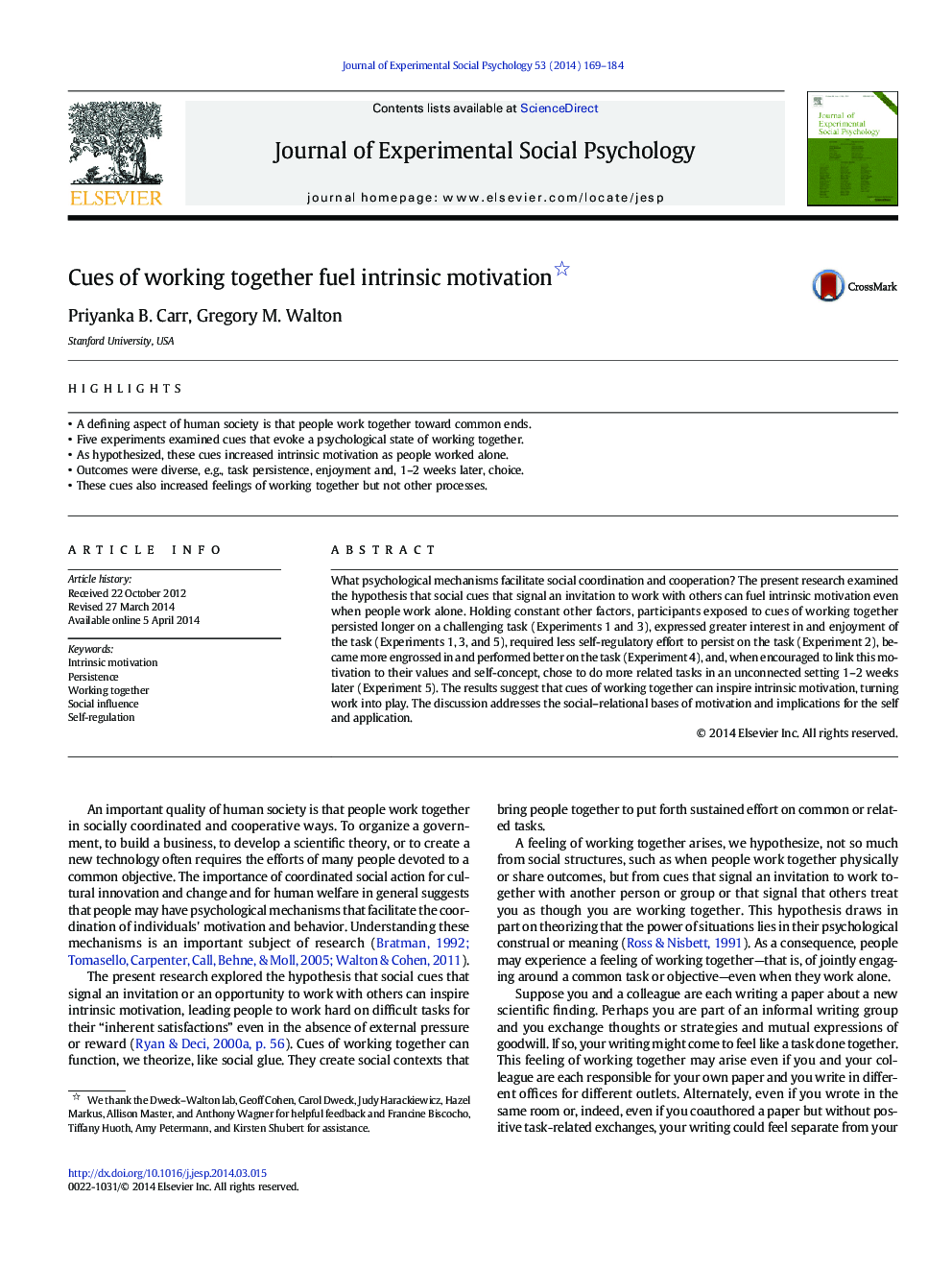| Article ID | Journal | Published Year | Pages | File Type |
|---|---|---|---|---|
| 947839 | Journal of Experimental Social Psychology | 2014 | 16 Pages |
•A defining aspect of human society is that people work together toward common ends.•Five experiments examined cues that evoke a psychological state of working together.•As hypothesized, these cues increased intrinsic motivation as people worked alone.•Outcomes were diverse, e.g., task persistence, enjoyment and, 1–2 weeks later, choice.•These cues also increased feelings of working together but not other processes.
What psychological mechanisms facilitate social coordination and cooperation? The present research examined the hypothesis that social cues that signal an invitation to work with others can fuel intrinsic motivation even when people work alone. Holding constant other factors, participants exposed to cues of working together persisted longer on a challenging task (Experiments 1 and 3), expressed greater interest in and enjoyment of the task (Experiments 1, 3, and 5), required less self-regulatory effort to persist on the task (Experiment 2), became more engrossed in and performed better on the task (Experiment 4), and, when encouraged to link this motivation to their values and self-concept, chose to do more related tasks in an unconnected setting 1–2 weeks later (Experiment 5). The results suggest that cues of working together can inspire intrinsic motivation, turning work into play. The discussion addresses the social–relational bases of motivation and implications for the self and application.
